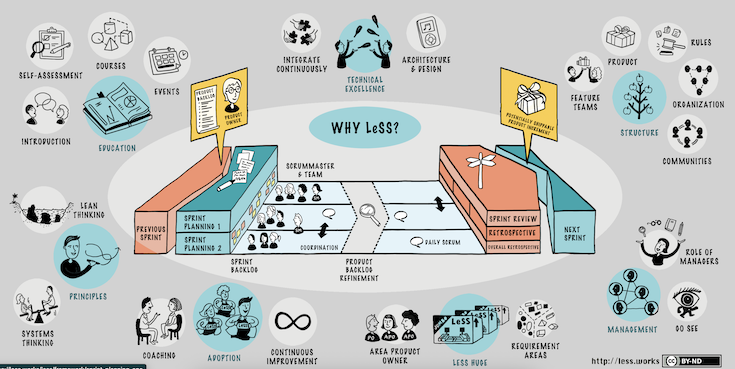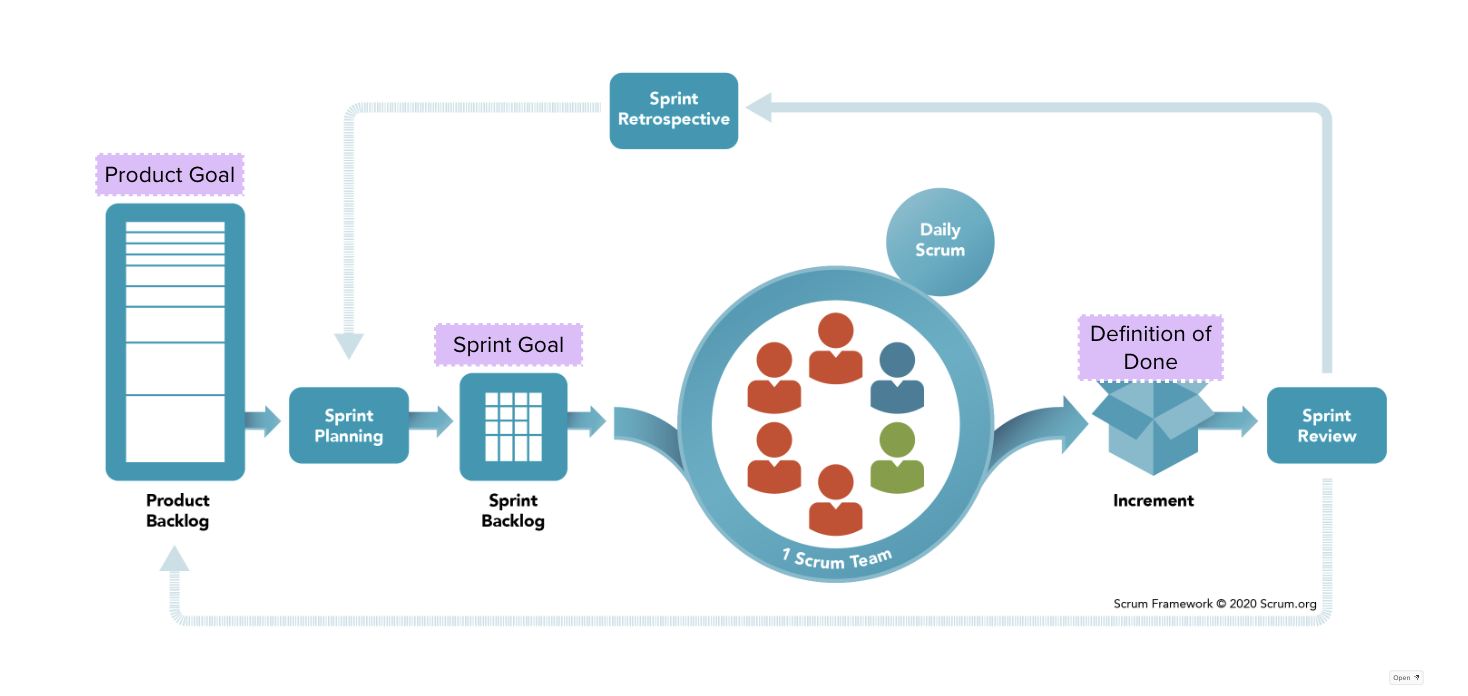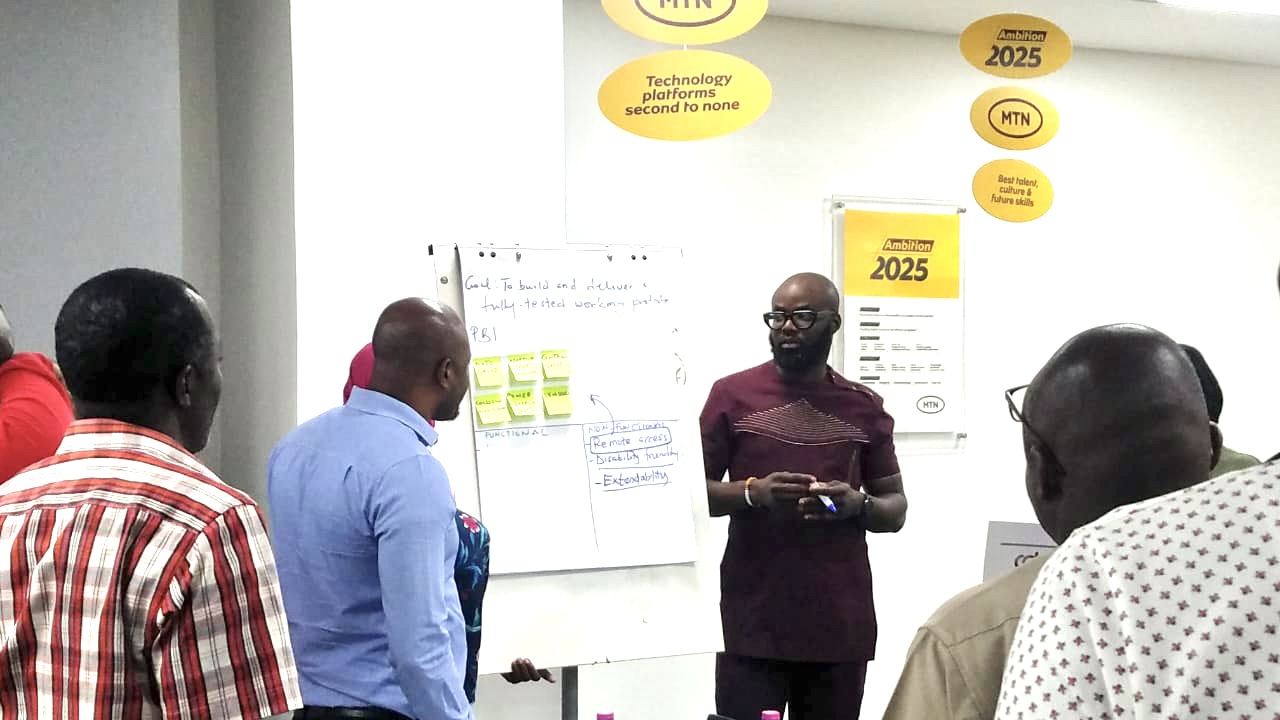I spent the better part of 3 days last week in a Certified LESS practitioner course with the awesome Bas Vodde, one of the creators of the LESS framework. I had so many ah-ha moments, and this is my attempt to document some of the key learning moments for me over the course of the 3-day course. These are my notes, and there is a lot more context that might help you as a reader.
Scrum
These blogposts are my opinions from reflections on topics relating to my current area of interest - Enterprise Agility, Leadership, Entreprenuership, Personal Development and Complexities of Africa.
I often get attendees at our Scrum Training ask me for my preferred format for a Daily Scrum. I don’t know that I have a preferred format, but definitely not “What I did yesterday, what I plan to do today and discussion about Blockers”. However, if I can get you to reflect on the purpose of the Scrum Guide:
… to inspect progress toward the Sprint Goal and adapt the Sprint Backlog as necessary, adjusting the upcoming planned work.
Most Teams that regularly run a Sprint Retrospective use the dreaded quadrant, What worked well, What Didn’t work Well, Ideas and Actions (and variants of this quadrants). I am sure your team has used this format many times. I coach Scrum Masters and their team to always prepare for Sprint Retrospective, and part of planning is observing the team all through the Sprint and experiment with different formats for running the Sprint Retrospective.
Increasingly, I encounter developers who don’t seem to enjoy using the Scrum Framework to deliver software, and this is a cause for concern because I have fond memories from my days as a developer working on a Scrum Team. I relished the collaborative atmosphere within the team, where everyone supported each other in development, testing, deployment, and held a shared sense of accountability.
However, nowadays, I hear developers express their discontent with Scrum for various reasons, including:
The Product Backlog Refinement session is not an official Scrum event, but it is a crucial activity that helps Scrum teams to achieve a shared understanding of the product backlog items in preparation for the sprint planning. Teams that adopt the product backlog refinement as a complimentary practice tend to have smoother sprint planning events. The number of refinement sessions within a sprint depends on various factors such as the state of the product backlog, the maturity of the product, the Scrum team’s availability and experience.
The commitments contained in the Scrum Artifacts are arguably one of the important element of the Scrum Framework; these commitments when deployed as per the intentions of the scrum framework contributes to increasing the effectiveness of the scrum team.
I was asked to help out a Scrum Team that did not see much value out of a well-crafted Sprint Goal for their Sprints. In the sprint planning, the team would rollover every product backlog item (PBI) that was not completed in the last sprint, and the team would add a few more PBIs from their backlog on the ask of the team manager, who also attended the Sprint Planning regularly.
Selecting a product backlog management tool can be a daunting task, as there are a plethora of options available on the market. Some of the most popular tools include Jira, Azure Dev Ops, Kanbanize, Trello, and Rally, to name a few.
As a Scrum Master, it’s important not to view yourself as an administrator for the chosen product backlog management tool, but rather to focus on understanding how the tool can support the Scrum team to be an effective team.
Should agile teams estimate defects?
This a one question that teams often find themselves debate and my perspectives has changed over the years on this. The short answer is … it depends on your team context and what you are trying to achieve with estimation.
Estimation is a practice that helps Agile Teams forecast the effort that is required to get a task done e.g. deliver a feature and as such, it contributes to capacity planning for the team.
Passing the PSM 1 assessment could be considered an indicator that you understand the Scrum theory and the principles that underpin Scrum. I always tell students in my PSM class, that my intention is not to make them pass PSM 1 but understand Scrum theory and principles.
There are a number of exercises that Professional Scrum Trainers invite students to partake in the course of the PSM 1 class; these exercises have been designed on practical experiences of Professional Scrum Masters and these exercises create a solid foundation for you as you commence your Scrum Master career.
You have just passed your PSM 1 assessment; however you would like to get some working experience as a Scrum Master. In my time as a Professional Scrum Trainer with scrum.org, the people that share this concern with me fall in 2 categories:
People that have self studied for the PSM and achieved the 85% score for the PSM1 assessment People that attended a Professional Scrum Master class and achieved the 85% for the PSM1 assessment You must realise and accept that passing the PSM 1 assessment is not the end of the learning process; the journey to being an experienced Professional Scrum Master is a life long learning experience.









